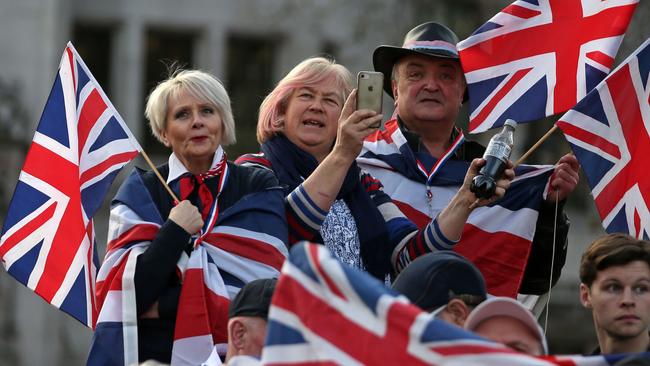EU blames ‘political meltdown’ in London as it braces for a wrecking-ball Brexit
EU governments have crossed a psychological threshold and are preparing for a disorderly Brexit.

EU governments have crossed a psychological threshold and are preparing for a disorderly Brexit.
They are testing how to handle British requests for market access in the event of a no deal — an outcome once viewed as a far-fetched nightmare. But what used to be “a possibility” is seen by some EU diplomats as the most probable outcome of the Brexit debacle.
“A no-deal scenario on April 12 is now a likely scenario,” a European Commission spokesman said. “The EU is fully prepared for a no-deal scenario at midnight on April 12.”
Several senior EU envoys gave even more pessimistic assessments in private, citing Britain’s parliamentary confusion as evidence that Britain was likely to tumble out of the bloc. “It’s an accelerating political meltdown in London,” said one.
The strategy for handling the scenario was discussed at a meeting of envoys on Thursday and revealed in a diplomatic note seen by The Sunday Times. The memo makes clear that the EU will insist on three commitments from Britain before entertaining fresh talks on future market access: Britain’s contribution to the EU budget, citizens’ rights, and the backstop arrangements to avoid a hard border in Northern Ireland.
EC secretary-general Martin Selmayr told envoys they faced a communications challenge: markets must be reassured the EU was adequately prepared for a no deal and it must be clear that Britain was to blame for a disorderly exit.
European Council president Donald Tusk will call a summit of EU leaders on April 10 and has warned Britain to come up with a clear “way forward” to halt a disorderly exit. To avoid this outcome and win an extension — most likely to the end of the year — Britain will need a fresh road map to a Commons majority for the deal, and will have to hold European parliament elections on May 23.
Several officials doubted whether Britain would be able to deliver. “It depends on whoever is in No 10 next week,” said one.
The decision on an extension will be made by EU leaders and most will support a request if Britain commits to Euro elections. But some will resist; French President Emmanuel Macron, Brexit negotiator Michel Barnier and Lithuanian Prime Minister Dalia Grybauskaite are most reluctant.
Hardliners view Britain lingering on in the bloc as a threat to EU cohesion. They believe Brexit will consume time and energy and suspect Britain would use its voting power as leverage by clogging up decision-making in an effort to renegotiate the deal. Better to amputate the limb than risk gangrenous infection, they argue. The EU has reasons to sabre-rattle. But that does not mean the threats are idle. There are indications that EU diplomats mean what they say.
German Chancellor Angela Merkel will travel to Dublin on Thursday to deliver a blunt warning to the Irish government that the time for avoiding the border question is over. In a no-deal scenario, Dublin will be forced to control the entry of goods into the single market from Northern Ireland. “They’ve done nothing so far,” said a senior EU diplomat. “It can’t continue like this. In the end, you can’t escape reality.”
The Sunday Times



To join the conversation, please log in. Don't have an account? Register
Join the conversation, you are commenting as Logout